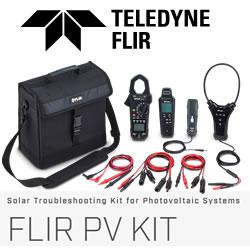Renewable Energy (RE) Could Meet up to 50% of Southern Africa's Energy Needs
By 2050, renewable energy technologies could meet at least half of Southern Africa's energy needs at a lower cost than the current 'business as usual' mix of essentially coal-based supply options.
Pretoria, February 25, 2008
By 2050, renewable energy technologies could meet at least half of Southern Africa's energy needs at a lower cost than the current 'business as usual' mix of essentially coal-based supply options. In order to achieve this, there needs to be a revision of current regional energy policies, as well as effective regional planning and co-ordination. This is the message Southern African delegates will take to the Washington International Renewable Energy Conference (WIREC) planned for March 4-6, 2008 based on the findings of a preparatory workshop for WIREC in Pretoria.
Southern Africa's participation in WIREC is expected to be a two-way dialogue. In the short-term it is anticipated that market opportunities for more sustainable and less risky long-term energy infrastructure investments in Southern Africa will be better understood. Given the current requirement for massive investment in new energy infrastructure in the region, it is opportune to choose investment trajectories, which will deliver cleaner low-carbon energy and more predictable energy service costs. At the same time RE technologies are expected to provide increased levels of access to energy services than are currently possible with more centralised energy systems.
Within the context of global climate change, WIREC provides an opportunity for Southern African stakeholders and international investment partners to forge a common basis for investing in cleaner energy services, which have greater long-term predictability in terms of costs.
REEEP's Southern Africa Regional Secretariat, with support from the US Agency for International Development, hosted the one-day Southern African Preparatory Workshop for WIREC on February 7, 2008 at the Innovation Hub, Pretoria. Stakeholders representing governments, regulators, financiers, industry, agriculture, R&D and civil society from seven countries (Angola, Lesotho, Malawi, Mozambique, Namibia, South Africa and Zambia) met to discuss the role of Renewable Energy (RE) in the SADC mix. A full account of the workshop is available at http://www.reeep-sa.org/wirec/.
Renewable energy has increasingly captured the attention of Southern African policymakers due to increased regional energy shortages. In a 2006 study on the potential contribution of renewable energy, authors Douglas Banks and Jason Schaeffler clearly demonstrate the credibility of a target of 50% of total energy from renewable resources by 2050, with changes in the current market conditions, policy implementation and regional planning.
At the preparatory workshop in Pretoria, the lack of regional planning, regulation and long-term contracts were highlighted as significant barriers to the uptake of renewable energy. "RE markets and resources do not begin and end at political borders," says Glynn Morris, REEEP's Southern Africa Regional Coordinator. "Energy services are both critical inputs to the regional and national economies in Southern Africa, and significant contributors as a sector of the economy," he notes.
The preparatory workshop identified several actions that could lead to better regional co-ordination and policy-making:
� The bolstering of regional planning, regulation and power trading institutions such as SADC Programme Office for Energy, RERA and SAPP (Southern African Power Pool).
� Stability in the energy sector for customers, producers and investors through legislation in terms of RE policy, as well as education and training in RE technologies.
� Common policy development and modes of implementation (including legislation); common regulatory approaches and frameworks; and, regional trading mechanisms for physical power and RE support mechanisms.
The South African WIREC preparatory meeting was part of a regional consultation that the US State Department asked the Renewable Energy and Energy Efficiency Partnership (REEEP) to carry out, in order to provide feedback to WIREC Ministerial Meeting. Other REEEP consultations took place in Asia as well as in Latin American and the Caribbean.
For more info contact:
Amanda Luxande
REEEP Regional Manager for Southern Africa
Renewable Energy and Energy Efficiency Partnership
9b Bell Crescent Close
Westlake Business Park
Westlake, Cape Town, 7945, South Africa
Tel: +27 (0) 21 701 3364
Fax:+27 (0) 21 701 3365
Mobile: +27 (0) 73 333 3215
E-mail: amanda.luxande@reeep.org
website: www.reeep-sa.org
Featured Product

FLIR PV KIT - Solar Troubleshooting Kit for Photovoltaic Systems
FLIR PV kits are designed to assess the performance, safety, and efficiency of residential, commercial, and industrial solar panels and photovoltaic systems. PV kits from FLIR help you diagnose faults and potential failures and ensure optimal energy production, system longevity, and compliance with industry standards. With a PV kit from FLIR, you'll be perfectly equipped for any solar installation or repair.
